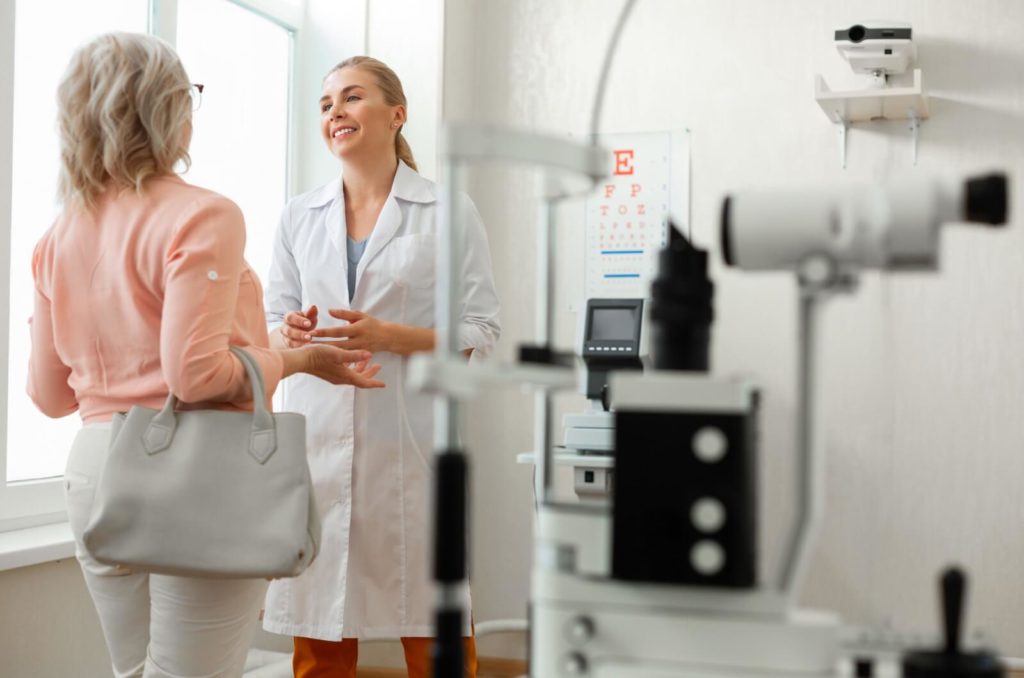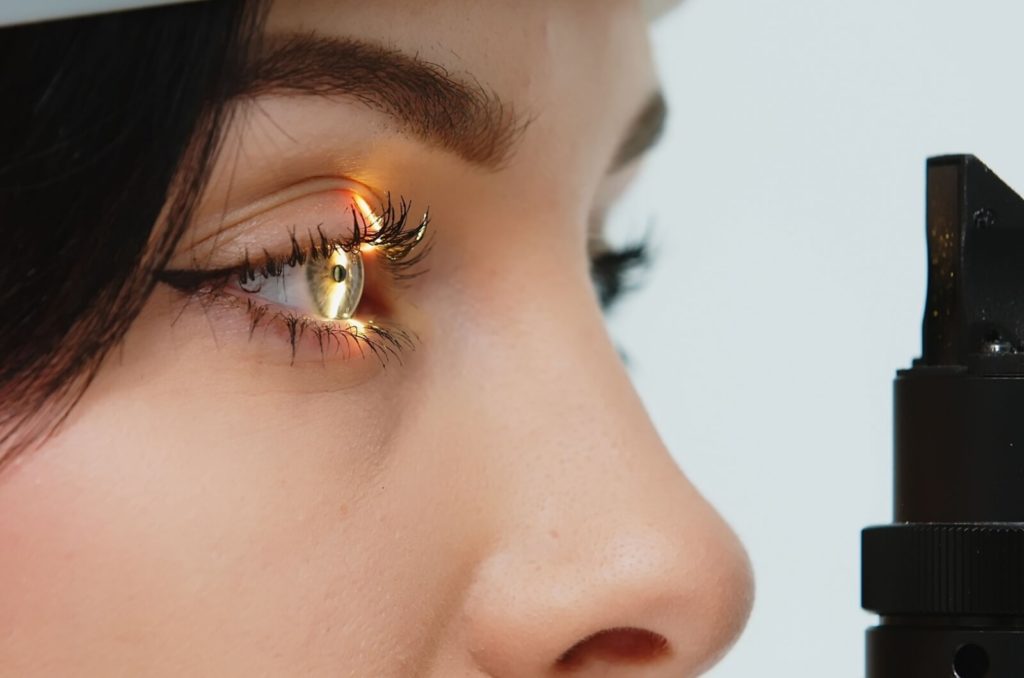In our fast-paced lives, it’s easy to overlook routine health exams, especially when it comes to our eyes. But annual eye exams remain crucial for maintaining optimal eye health and detecting potential issues before they become serious problems.
The Eye Care Team is dedicated to improving the quality of life for each of our patients. With routine checkups and proper management, we can help protect your eye health.
The Importance of Regular Eye Exams
Regular eye exams can reveal a lot more than just changes in your vision.
Many eye issues progress slowly and without any noticeable symptoms. By the time you notice a problem, irreversible damage might have already occurred. For example, glaucoma is often called the “silent thief of sight” because it damages your optic nerve without obvious symptoms until significant, irreversible vision loss has occurred.
Eye exams offer a comprehensive look into your eye health and can uncover signs of eye diseases like glaucoma, cataracts, and macular degeneration. Detecting these conditions early can significantly affect the success of treatment and help prevent vision loss.
Eye exams can also detect signs of systemic conditions, such as diabetes and high blood pressure. Some conditions can be first diagnosed through changes in the eyes.
And of course, eye exams can help monitor your sight, keeping your prescription up-to-date and your vision sharp with glasses or contacts.
Uncorrected vision problems can lead to eye strain, headaches, and even accidents, particularly if you drive. Making sure that your prescription is up-to-date helps avoid these unnecessary complications and improves your quality of life.

Who Should Get Yearly Exams?
The American Optometric Association recommends that low-risk adults and young people get an eye exam at least once every 2 years. However, even low-risk adults and children can benefit from annual eye exams.
Some people should be especially vigilant about their eye health and schedule annual eye exams:
- People with existing eye conditions
- People over the age of 65
- People with a family history of eye diseases
- People with chronic health conditions
Your optometrist can discuss how often you should book a checkup. Depending on your condition, you may need to book more than once a year to maintain healthy vision.
Benefits of Annual Exams
Working closely with your optometrist, regular exams help you maintain optimal eye health. Eye exams:
- Help keep your vision clear and comfortable
- Let you discuss changes in vision and eye health
- Detect issues early and allow personalized care.
Primarily, eye exams are centered around prevention and education. With regular management and educational conversations with your optometrist, you can work together to maintain optimal eye health.
Preparing for Your Eye Exam
To make the most out of your appointment and make the experience as smooth as possible, remember to:
- Bring your glasses or contact lenses. If you’re visiting a new optometrist, bring your current prescription.
- Be prepared to discuss changes in your eye health, including symptoms of discomfort and changes in vision
- List and share with your optometrist any medications you’re taking.
What to Expect During an Eye Exam
Eye exams are non-invasive, using modern technology and digital imaging to gain detailed insights into your eye. A comprehensive eye exam typically includes:
- A review of your case history. A discussion about your medical history, lifestyle habits, and eye diseases in your family helps personalize your eye exam.
- A visual field assessment. The Humphrey Visual Field Test can check that your peripheral vision remains healthy.
- A visual acuity test. Using the Snellen eye chart, your optometrist can evaluate your eyesight and fine-tune your prescription.
- Ocular coherence tomography (OCT): Using OCT, your optometrist can check your retina, macula, and optic nerve for signs of eye problems.
- Digital retinal imaging: A detailed image of your retina can help diagnose eye diseases and detect any irregularities.
- Tonometry: Using a specialized device, your optometrist can measure your eye pressure and assess your risk for glaucoma.
Personalized Treatments & Services
Each step of an eye exam is designed to get a clear picture of your eye health. Accurate information allows accurate diagnosis, helping your optometrist develop a care plan tailored to you.
Depending on their assessment, they may conduct additional tests. They may also recommend solutions like:
The Path to Healthy Eyes Through Regular Exams
Committing to an annual eye exam is a small investment in your long-term health. By prioritizing regular eye exams, you can catch potential issues early, update your prescription, and ensure your eyes are healthy.
If it’s been over a year since your last eye exam, it’s time to book an appointment and take a proactive step in safeguarding your vision. At The Eye Care Team, you have access to comprehensive care that is both thorough and personalized to your needs. Schedule your annual eye exam with us today and take the first step towards clear, healthy vision.



